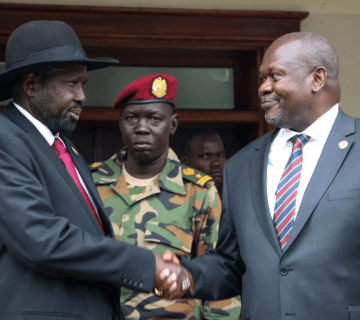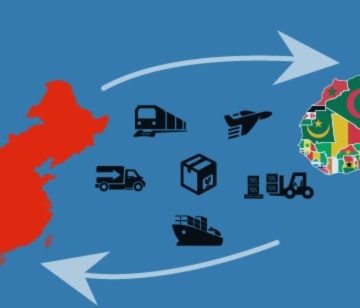In March 2025, Kenya extended formal recognition to Kosovo as an independent state, joining over 100 other states in doing so. Despite meeting all the criteria outlined in the Montevideo Convention, Kosovo is however not a member-state of the United Nations. This exclusion is primarily due to the continued use of veto power by Serbia’s key allies– Russia and China in the United Nations Security Council (UNSC), to consistently block its admission. Serbia opposes Kosovo’s bid for UN membership and recognition, arguing that its declaration of independence was unilateral and lacked mutual consent—unlike the case of Serbia and Montenegro, where separation occurred through a mutually agreed referendum. Serbia and Kosovo share a long history of tensions, with one of the most tragic episodes being the ethnic cleansing of ethnic Albanians living in Kosovo by Serbian forces in 1999. In response to the escalating atrocities and a humanitarian crisis, NATO intervened through a 78-day aerial bombing campaign targeting Serbian military and infrastructure, ultimately compelling Serbian forces to withdraw from Kosovo. After the conflict, Kosovo was placed under a United Nations interim administration (UNMIK) as a UN-mandated territory for nearly a decade. In 2008, after the expiration of the mandate and continued deadlock over its final status, Kosovo unilaterally declared independence, a move that has since been recognized by over 100 countries including major global powers such as the United States, the United Kingdom, and Germany. Kenya’s recent decision of recognizing Kosovo has however elicited mixed reactions within its public, raising questions on whether the move aligns with the country’s foreign policy principles—and more precisely, its core state interests.
Kenya-Serbia Relations
Kenya-Serbia relations are rooted in the broader historical context of Kenya’s engagement with the former Socialist Federal Republic of Yugoslavia (comprised of the republics of Bosnia and Herzegovina, Croatia, Serbia, Macedonia, Slovenia and Montenegro). In the 1970s, Kenya and Yugoslavia shared a common ideological commitment to neutrality and anti-colonialism—principles that informed their participation in the Non-Aligned Movement (NAM). Following the dissolution of Yugoslavia, Kenya sustained diplomatic relations with Serbia, with cooperation primarily focused on economic engagement.
Although the trade volumes remain relatively low, the trade balance between Kenya and Serbia has slightly been in favor of Serbia, with Kenya exporting goods worth USD 2.97 million and importing goods worth USD 4.17 million in 2023. Kenya’s major exports to Serbia include; live trees, tobacco, edible fruits, crude vegetable materials and wood products, coffee, tea and fish while the major imports from Serbia include; electric machinery, medicinal and pharmaceutical products, insecticides, mechanical and electrical items and telecommunication equipment.
Was Kenya’s Decision Consistent with its Foreign Policy?
Kenya has a history of supporting the right to self-determination, as observed through its support for the liberation struggles in Southern Africa, including the fight against apartheid in South Africa and the independence movements in Namibia and Zimbabwe. Kenya has traditionally maintained this foreign policy stance, as evidenced by the establishment of diplomatic relations with both Palestine and Western Sahara—entities actively pursuing the right to self-determination. The latter is also observed through Kenya’s leading role under the auspices of the Inter-Governmental Authority on Development (IGAD) in the signing of the Comprehensive Peace Agreement in 2005, which paved way for the self-determination of South Sudan.
However, Kenya’s new foreign policy orientation under President Ruto suggests a potential departure from this traditional stance. Unlike notable African countries such as South Africa and Algeria, where support for self-determination still remains a core pillar of foreign policy, Kenya now appears to support self-determination selectively—primarily when it aligns with its strategic economic or political interests. This shift is particularly reflected in President Ruto’s early diplomatic engagements especially in the incident involving non recognition of Western Sahara, a decision that was reversed shortly afterwards. Shortly after his election in 2022, the President held discussions with Moroccan officials, signaling Kenya’s interest in strengthening bilateral relations. During this period, an informal statement was shared although later retracted, that appeared to indicate a reassessment of Kenya’s stance on the Western Sahara issue. The move was widely interpreted as being influenced by strategic interests, particularly Kenya’s pursuit of closer economic ties with Morocco, including cooperation on fertilizer production, which aligned with the President’s manifesto of reducing fertilizer prices and boosting agriculture.
Possible Implications of Kenya’s Decision.
Serbia termed Kenya’s decision as “regrettable”, signaling the possibility of strained diplomatic relations. While strained diplomatic relations may arise, it is unlikely that trade between the two countries will be significantly impacted, given the mutual benefits that both States derive from their commercial exchanges. However, Serbia’s previously witnessed engagements with the Kenyan Parliament and the Kenya National Chamber of Commerce and Industry (KNCCI), all aimed at deepening economic cooperation may cease.
Kenya’s recognition of Kosovo can be viewed as part of its broader, ongoing alignment with the West, in this case, the European Union (EU) on key international and diplomatic issues. Over time, Kenya has pursued a range of initiatives that reflect a closer engagement with the EU. Although the recognition of Kosovo viewed as an independent decision may not yield direct or immediate benefits, it forms part of Kenya’s broader foreign policy actions that position it as a key EU partner. This cumulative alignment holds the potential to unlock expanded opportunities for Kenya, particularly in areas such as trade, investment, development cooperation, education, and climate action. With the recent suspension of the benefits that came along with the African Growth and Opportunity Act (AGOA), a significant key trade agreement that currently remains beneficial for Kenya is the EU-Kenya Economic Partnership Agreement (EPA). Alongside other provisions, the trade agreement gives Kenyan products duty-free access into the EU market. Besides the EPA, Kenya has other beneficial agreements with the EU in security and development.
Although there is speculation that Kenya’s recognition of Kosovo could strain its relations with China and Russia—both firm supporters of Serbia on the subject matter due to their opposition to setting precedents for separatist movements, such an outcome is unlikely. Several states, including African states, have recognized Kosovo and still maintain cordial and even strategic relations with both Russia and China. Notable examples include Mali, Burkina Faso, and Niger, all of which have recognized Kosovo yet currently engage in close security and economic cooperation with Russia. The same is the case for China since several African states that have recognized Kosovo are still in strategic partnerships and are even beneficiaries of the Belt and Road Initiative. Kenya’s decision therefore aligns with its evolving foreign policy, reflecting a strategic shift toward engaging with international actors and blocs that can advance its core strategic interests.
Jeremy Oronje is a Research Assistant at the Horn Institute
Photo Credits: Ministry of Foreign Affairs Kenya via X (@ForeignOfficeKE)



